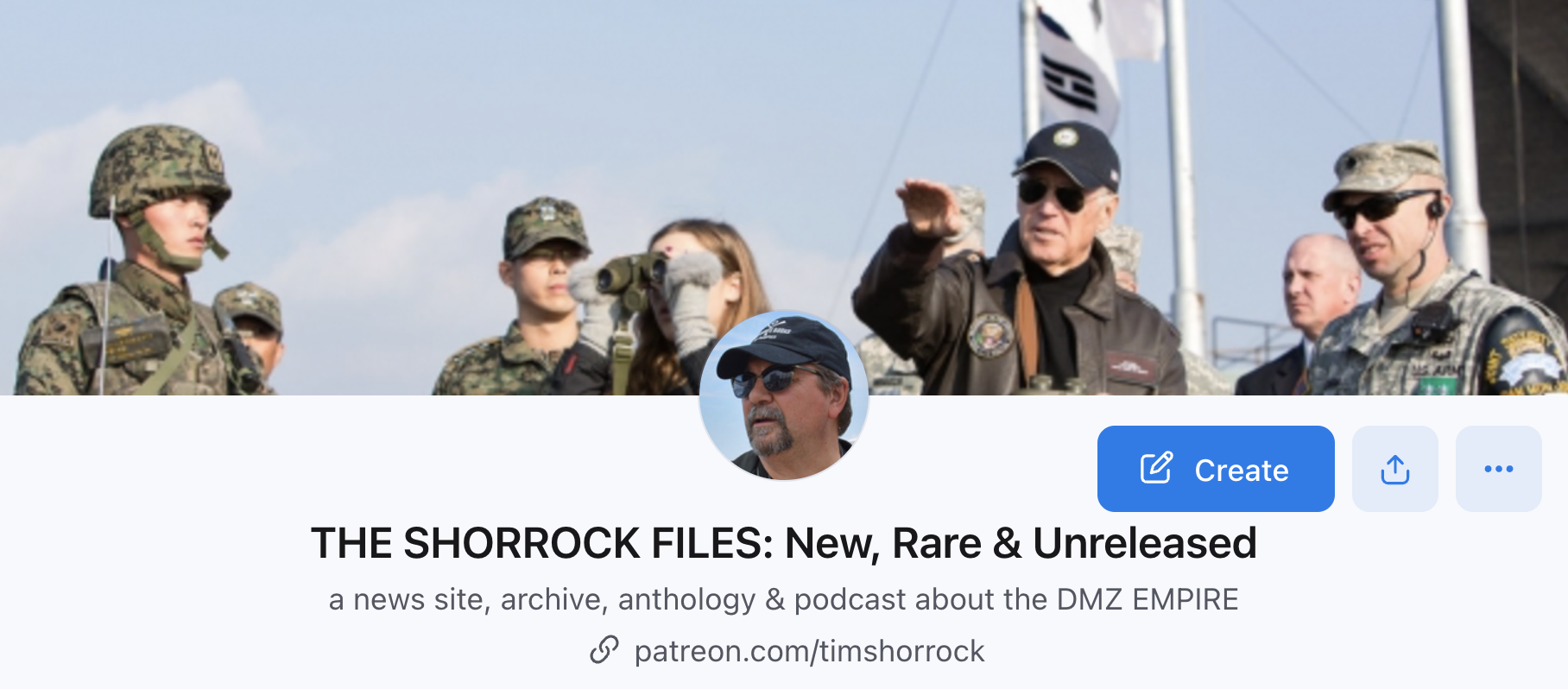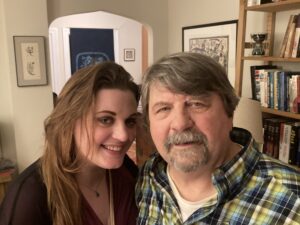
I’m heading back to Korea on Friday. I’ve been invited to Gwangju by the city government with the small group of Korean and foreign reporters who were there during the citizens’ uprising of May 18, 1980. The city is sponsoring several days of events, including a press conference and a major commemoration at the national cemetery where the hundreds of people who died fighting for democracy are buried. In my mind, Gwangju is the most overlooked anti-fascist uprising in history, and deserves great respect as one of the few times during the Cold War that a people directly took up arms against a U.S.-backed military dictatorship. Last year, Gwangju made me an honorary citizen for uncovering the American role in those events, the greatest honor I’ve ever received for my journalism.
After Gwangju, I’ll be stopping for a few days on the island of Jeju, which was itself the scene of a bloody uprising against fascist rule in 1948 that was put down, at great cost in human life, by a South Korean army led by U.S. counterinsurgency specialists. There, amidst the splendor of one of Asia’s top tourist spots, locals have been fighting for years to stop the South Korean government (and its construction ally, Samsung) from building a naval base that will also be used by the U.S. Navy (it’s part of the human cost of the Obama-Clinton “Asia Pivot” you’ve heard so much about). I’ll then stop in Seoul before flying home via L.A. Along the way, I’ll be posting stories and pics here of what I’ve seen and experienced.
I come to South Korea at a time when repression against left and progressive forces is on the upswing under the increasingly authoritarian government of Park Geun-hye, daughter of the late dictator Park Chung Hee, who ruled with an iron fist from 1961 to 1979. I experienced a bit of that repression last year, when I was subject to intense and unusual criticism from the Park government for an article I wrote for The Nation. Here’s a piece I wrote on that incident that was published in OhMyNews, one of the most widely-read websites on the Internet. It gives a flavor of what ordinary South Koreans deal with every day.
THE CONSULATE-GENERAL AND THE NATION:
MY EXPERIENCE IN KOREA AS A JOURNALIST
By Tim Shorrock
OhMyNews, December 8, 2015
When I heard last week that the South Korean Consulate in New York had contacted my editors at The Nation about my article on President Park Guen-hye’s crackdown on the labor movement, I was surprised and a little shocked. I’ve been writing about South Korea for over 30 years for the Nation and other US publications. But until this call, I’d never heard a direct complaint about my article from the Korean government. So I wondered: why did this article catch their attention?
From what I’ve been able to piece together, the person at the Consulate contacted my editors on direction from his boss in Seoul. But he wasn’t contacted until after my article had been translated into Korean and posted on the Internet, drawing thousands of readers and comments. My article, which was quite critical of the Park government and included many details about her dictator father, Park Chung Hee, apparently deeply offended someone inside Park’s foreign ministry, which then instructed the Consulate to complain to the Nation.
Aside from the fact that I refered to “a dictator’s daughter,” however, there was little in my article that was new or unusual. I believe that it caught the government’s attention because it was so unlike most reports about South Korea in the U.S. press. For the most part, American reporters in Korea see the country only in Cold War terms, with the “bad” North Koreans always the villains and the “good” South Koreans always the victim of those villains. And of course they consistently see the United States as the ultimate champion of “good” South Korea.
Unfortunately, this framework obscures the complexities of South Korea, its political and economic system, and its ties to the United States. As a result, few Americans know that South Korea was ruled by many years by tough dictators who were supported by the United States despite their suppression of democratic rights. Fewer still are aware of the deep divisions within South Korea over this legacy and that the fact that many Koreans are opposed to the conservative policies of Park Guen-Hye and her predecessor, Lee Myung-bak. Why would Americans think any differently when President Obama, America’s most liberal president, praises Park and Lee as champions of democracy and important military partners?
Therefore, my primary thought after the Consulate contacted the Nation was that the Korean government was upset that an American journalist was putting their country in an unfavorable light. Calling my editors and complaining about my article seemed to be a form of intimidation to pressure the Nation and myself to report more favorably about President Park. It angered me, and so I posted what they’d said on my Facebook page – not knowing of course that it would be picked up as a major story by the Korean media.
So I disagree with the government’s attempt to “correct” my reporting. At the same time, I found myself agreeing with something the Consulate told the Nation. He said that we should understand that South Korea has undergone tremendous change over the past 30 years. That is true, and I can’t disagree.
I lived in South Korea during the era of Syngman Rhee and witnessed his overthrow. And later, during the 1980s, I spend many months in South Korea writing about the citizens’ movement for democracy and meeting with labor organizers, religious activists and political organizers about their experiences and hopes for the future. On my last trip, in 1985, conditions were very difficult, and sometimes I would meet someone one day and learn they had been arrested the next. I also visited Kwangju, and learned much about what happened in that city during the uprising and afterwards.
After that visit, I didn’t return to South Korea for many years. But in reporting from Washington in the 19990s and in my visits in 2001, 2013 and 2015, I understood how much South Korea has changed since the dark days of dictatorship. I know that conditions are still bad for many people, particularly ordinary workers, farmers and the urban poor. But I also know that South Korea today is nothing like the authoritarian days of the 1970s and 1980s. My worry, along with many Koreans, is that under Park South Korea may be slipping back into the old ways. Instead of reacting angrily, the Korean government should welcome that critique and show the world that it is unafraid of criticism.
To the opposition party, Hankyoreh and other publications that have criticized the Park government for criticizing the Nation – thank you for your solidarity! You are showing that democracy is still vital and that you have no intention of allowing South Korea to slip back into dictatorship.
Lastly, I want OhMyNews readers to know that I have tremendous respect for what South Koreans have accomplished in building that democracy over the past 50 years. You should also know that I am extremely critical of my own government and the Obama administration for its undemocratic policies, particularly the widepread surveillance of U.S. citizens by the National Security Agency and its attacks on whistleblowers who try to expose these wrongdoings.
Last May I was made an honorary citizen of the City of Kwangju. So I feel like I’m a citizen of both Korea and the United States – and as a citizen and a journaliist, it’s my duty to shed light on what’s wrong with both of our countries and seek ways to make us better. No government should be afraid of the truth.

